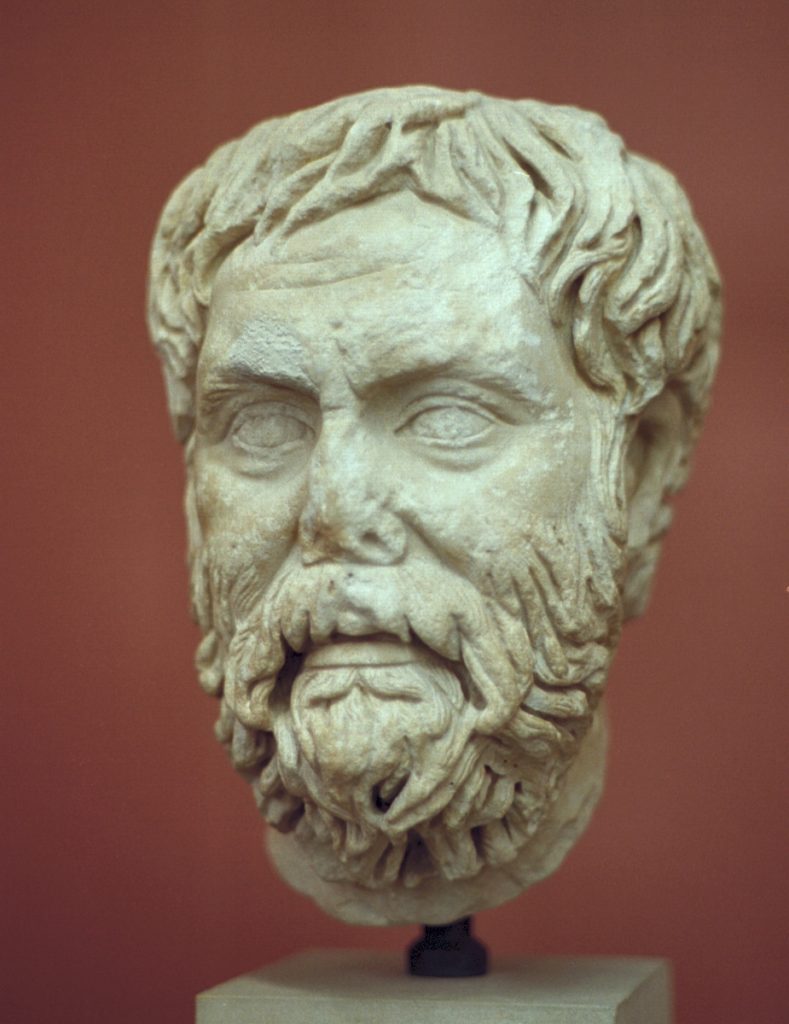
“…the Skeptics were hoping to achieve freedom from disturbance by resolving the conflict between appearances and reality, and, being unable to do this, they suspended judgment. But then, by chance as it were, when they were suspending judgment freedom from disturbance followed, as a shadow follows the body.” – Sextus Empiricus, Outlines of Pyrrhonism, part 12
Two different ancient schools called themselves “skeptical”, the Academic Skeptics and the Pyrrhonian Skeptics. Both expressed fundamental doubts about the possibility of human knowledge. The Pyrrhonian school originated with Pyrrho of Elis (a city on the Greek Peloponnesian peninsula), and remained viable well into the common era when its precepts and arguments were recorded by Sextus Empircus (2nd or 3rd Centuries CE). In particular, Pyrrhonians doubted all candidates for a Criterion of Truth (i.e.,, objective truth). Without truth to certify human judgement, we must fall back on appearances, which Pyrrhonians accepted as a fallible Criterion of Belief. For Pyrrhonians, like other ancient schools, this position was part of a way of life. If you find Pyrrhonism interesting, you may want to consider it in light of contemporary theories of knowledge or another ancient school, namely Epicureanism.
